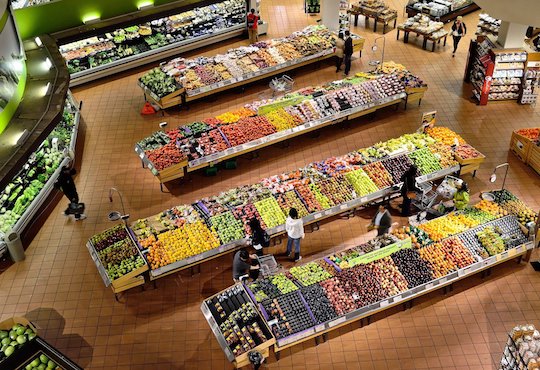Place an order at Just Salad and there are plenty of opportunities to personalize the menu. You can filter by calories. Choose dairy-free. Exclude gluten, or only browse dishes that fit into the keto diet. Now, the salad bar has gone one step further.
In September, it became the first U.S. restaurant chain to let diners select their meal based on how much damage it does to the planet, too. Feeling green? Then opt for a Tokyo Supergreens Salad, contributing just 0.28 kilograms of carbon into the world. Want to be conscious but need a protein hit? Go for the seasonal Backyard BBQ Salad, chock full of chicken, cheddar and corn, and accept that your dinner will have three times the impact on the environment.
Though one of the first movers in the U.S., Just Salad is not the only business to display carbon footprint labels on its food. In fact, it’s become a popular choice with food companies that want to satisfy the swiftly growing number of climatarians out there, consumers who select food based on its sustainability. Recent surveys show that 6 in 10 Americans say it’s important to them that the food they consume is sustainable, while 25 percent actively choose food brands that have tried to reduce their environmental impact. In response, companies such as Quorn Foods, Country Crock, Unilever, and Panera Bread have pledged to put carbon labels on their products.
It sounds like an important step. Particularly when you consider that food accounts for up to a third of our individual carbon footprint. But are these labels really a straightforward shorthand to eating more sustainably?
Read full article Will carbon labels on our food turn us into climatarians? at discovermagazine.com
Photo credit: ElasticComputeFarm from Pixabay
16 November 2020Original Author: Megan Tatum

